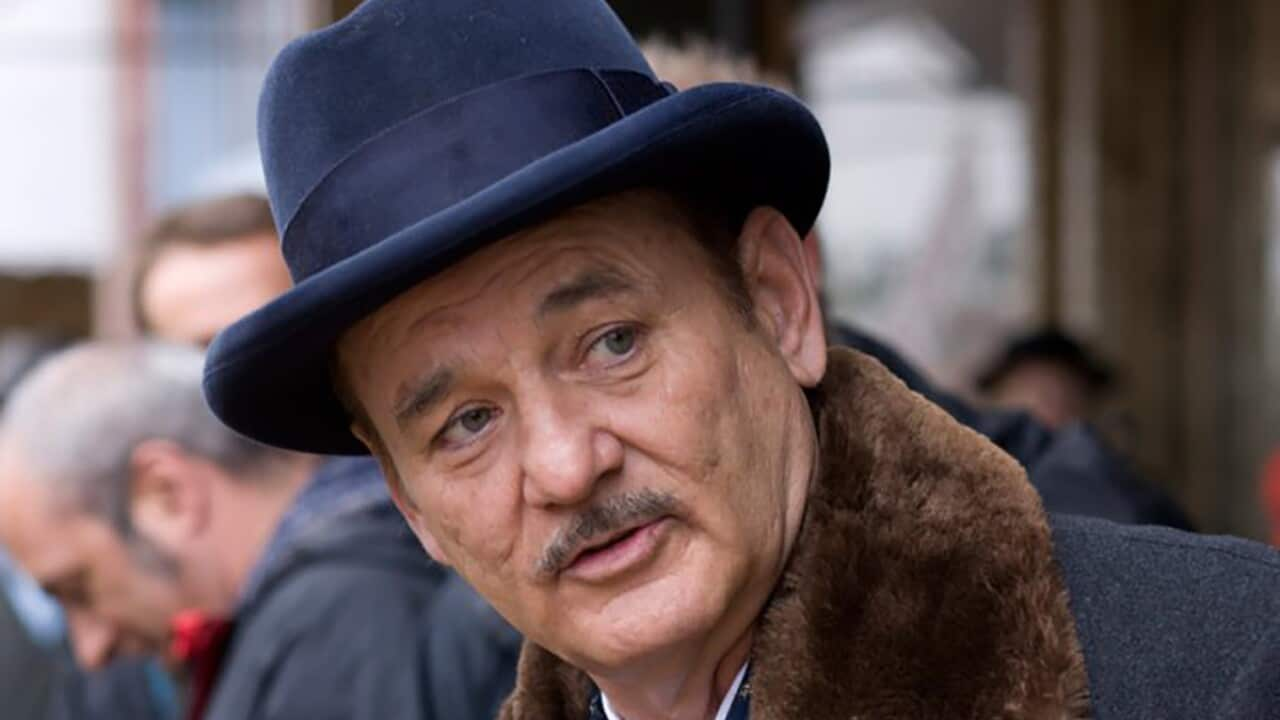In the last 18 months of lockdown and pandemic ennui, many people have taken up baking and cooking. But is there anything more comforting than buttered toast? The movie, Toast, makes a strong case for this very basic food: you can aim high and cook fancy food, but when you’re sick, sad or simply talentless in the kitchen, there’s always toast.
So goes Toast’s opening scene, which is based on the life of award-winning English food writer and journalist, Nigel Slater. He first wrote for Marie Claire magazine and the Observer before writing his own recipe books. This movie is based on his memoir Toast: A Story of a Boy’s Hunger and chronicles Slater’s early life from age nine to seventeen. It is often described as a heart-warming coming-of-age story, but it is more accurately a cross between a Cinderella and superhero origin story, with sepia tones and 1960s décor.
In the first half of the movie, we see that nine-year-old Slater’s (Oscar Kennedy) mother (Victoria Hamilton) is sickly and has no culinary skills, so their family dinners were often canned food or the trusty toast. This is unfortunate for a lad who is fascinated with gourmet food and desperate for his family to at least try his spaghetti bolognese. But his efforts were in vain as his unimpressed parents resort to toast, yet again.
This is already an unusual food origin story as there are no delightful scenes of family dinners or shots of mothers and grandmothers preparing an abundance of food. The only positive interaction Slater has is with the gardener, Josh (Matthew McNulty) who encourages him to eat a fresh radish from the garden. This is noteworthy as young Slater has never tasted a vegetable that did not come from a can.
This is the least of his concerns though, as his mother dies and leaves him with his dad. Mr Slater (Ken Stott) shows little affection for his son. Slater has full reign of the audience’s empathy at this stage: a scared, lonely boy who has lost his mother and now lives with his father who serves him raw meat pies.
In the second half of the movie, it shifts gears with the introduction of Mrs Potter (Helena Bonham-Carter). She starts out as the Slaters’ cleaning lady but eventually becomes Mr Slater’s companion. It is clear that Bonham-Carter is cast as an evil stepmother of Disney proportions, always with a cigarette dangling from her mouth. It is exactly the kooky, eccentric role we have come to expect of Bonham-Carter and here she steals the show. She’s brash, calculating and has no desire to make peace with Nigel. But oh wow, can she cook.
She is the reason why the movie is a time capsule of popular British food shot with excellent food photography. There are scones, puddings, trifles, jellies, Victoria sponge cake, roast chicken. There are engrossing scenes of food being prepped, cooked, presented and consumed. Mr Slater is delighted that his new wife is an excellent cook while the teenage Slater (now played by Freddie Highmore) is torn between grudging admiration for her culinary skills and plain hatred.
The cornerstone of the culinary battle between Slater and Mrs Potter is the lemon meringue pie. When Mrs Potter bakes the first of many lemon meringue pies, Mr Slater delightfully declares that it is best he’s ever tasted. Slater notices and wants to recreate that magic for his father but unfortunately for him, Mrs Potter is not about to share her recipe.
So he tries to reverse engineer it. He skulks around the kitchen when she makes lemon meringue pie to learn the steps, he counts the eggshells to know how many eggs to put in, he experiments in his school’s kitchen. When he finally makes a decent version and hands it to Mr Slater, he brusquely declines it. Nigel’s disappointment is palpable, and it makes us wonder, was this man really so uncaring?
Autobiographies and memoirs are not often comprehensive sources of information as it only features one person’s point of view and can be difficult to verify, particularly because Slater wrote his after Mr Slater and Mrs Potter died. It is possible that in Slater’s memoir, he remembered his father and stepmother as crueller than they were. We will never know.
However, Slater did not overly endear himself to the audience either, which is an interesting creative decision. The young Slater’s disdain for Mrs Potter seemed classist rather than out of loyalty for his dead mother. “She’s our cleaner,” he smarmily tells people about Mrs Potter. “She’s common!”, he yells at his father.
The teenage Slater was a glowering, raging person. He did not have any friends and his peers regularly taunted him for being gay, for choosing home economics lessons over woodwork and for generally being uncool.
Because of this, there is no obvious villain or hero in the movie. However, in real life, Nigel Slater landed on his feet, worked in restaurants and hotels in London and now pens columns in The Guardian for .
Sometimes, it’s nice to know that things turned around for a struggling protagonist.
Bake lemon meringue pie
Watch ‘Toast’
Wednesday 20 July, 8:40am on SBS World Movies
Thursday 21 July, 3:25pm on SBS World Movies
Thursday 21 July, 3:25pm on SBS World Movies
Streaming at SBS On Demand
PG, AD
UK, 2010
Genre: Drama, Comedy, History, Family
Language: English
Director: S.J. Clarkson
Starring: Freddie Highmore, Ken Stott, Victoria Hamilton, Helena Bonham Carter

Helena Bonham Carter and Freddie Highmore in ‘Toast’ Source: SBS Movies











